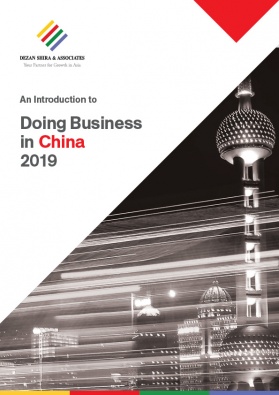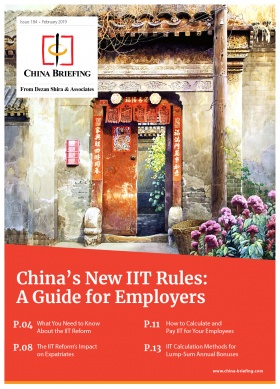The ‘996’ Work Culture That’s Causing a Burnout in China’s Tech World
Last week, Alibaba founder Jack Ma made a bold statement on his blog defending the notoriously grueling ‘996’ work culture – working 12 hours a day (9 am to 9 pm) and six days a week.
His advice to complaining workers was modeled in the rhetoric that’s become commonplace in China’s tech sector – “How do you achieve the success you want without paying extra effort and time?”
Richard Liu, the founder of the Chinese e-commerce company JD.com, added his own two cents by calling employees who seek work-life balance as “slackers” who were not welcome at his company.
In a WeChat post under the pen name of Bai Ya, Zhu Ning, the founder and chief executive of Hangzhou-based e-commerce firm Youzan, said that his company’s human resources department informed every new hire that working at Youzan meant “huge pressure, where many have already treated long work hours as a habit and can’t really tell work and life apart”.
Why the 996 work culture will not end anytime soon
The grueling work ethic is both defended and eulogized by employers in China’s technology sector as the very reason for its sudden and accelerated growth over the last 10 years. Jack Ma himself celebrates the constant grind because he believes that it has been integral to the successes of unicorns like Alibaba and Tencent.
Employees at most tech companies are either encouraged or required to put in long, unpaid hours to show their commitment to their jobs and loyalty to the company. Many companies offer their employees a suite of facilities – such as gyms, nap rooms, and laundry services – to further encourage them to spend long hours at the office.
And the slog isn’t limited to junior employees – most senior executives and managers work more than ‘996’ hours, even during weekends. Very often, key promotions or even retaining jobs means putting in overtime to prove the employee’s worth.
Moreover, for those looking to switch jobs, the situation has turned grim in the past year and a half as overall growth has slowed and a course correction seems underway in terms of the valuation of startup entities and venture capital available. According to jobs platform Zhaopin, intense competition for job vacancies in China’s tech companies and startups saw an average applicants-to-jobs ratio of 32 to 1 in 2019.
The slowdown in China has resulted in a hiring freeze in the tech sector with more layoffs than usual. Market research firm Preqin recently reported that funding in the sector has declined 12 percent to US$18.3 billion; the number of venture capital deals fell 25 percent year-on-year to 713 in Q4 last year.
Besides global headwinds, China’s technology sector has also had to contend with tightening government regulations, affecting several sub-sectors, from the gaming industry to news aggregator platforms to education apps. Here, Beijing’s goals of job creation and support for business seems to be cancelled out by the crackdown on content deemed ‘harmful, vulgar, or misleading’.
Why the backlash now
The combination of these stressors means that tech firms are having to squeeze more work out of employees or lower costs by cutting down on benefits and bonuses, which previously comforted young workers sacrificing any work-life balance to achieve personal growth targets. Today, Chinese tech employees are increasingly looking at wage ceilings and lesser perks, having to settle with simply being gainfully employed.
That doesn’t mean there is no lack of resentment.
In late March, a group of software developers took to protesting the 996 work culture on the code-hosting platform Github. They started a project “996.icu”, a play on the fact that working such long hours could very well land an employee in the intensive care unit.
The discussion has since gained widespread attention on social media and users on Github have compiled a blacklist of over 150 companies that push their employees to do overtime or work excessive hours.
And, last Sunday, China’s state-run paper, the People’s Daily, joined the conversation with its editorial stating: “Employees who object to 996 cannot be labelled as ‘slackers’ or ‘not fighters’. Their real needs should be considered.”
What China’s labor law says about overtime
Chinese law says that employees should not be asked to work more than eight hours a day or 40 hours a week. Businesses must restrict overtime to 36 hours a month.
Yet, leading employers in the technology sector, such as the video app TikTok creator Bytedance, the telecom firm Huawei, and the e-commerce platform Pinduoduo have been blacklisted by past and current employees as places where working overtime is the norm. Their success is instead equated with elevating China’s image abroad and fundamental to the country’s economic growth and innovation story.
A reason why such companies do not get penalized may be due to their professed nature of work and the legal workaround. Despite the written law, employees are frequently discouraged from filing for overtime. For those new to China’s labor landscape, laws regulating working hours can be categorized according to the following systems.
The standard work hour system
Under this system, an employee’s work day should not be more than eight hours and an average work week is not more than 40 hours, which equates to a five-day work week.
Workers are entitled to at least one rest day per week and longer working hours are subject to established overtime rates. Most white-collar work falls under this category.
The comprehensive work hour system
This system accumulates work hours over a specified period (weekly, monthly, quarterly, or yearly). The average number of hours is then calculated based on this accumulation period. Broadly speaking, this system is most suited to work roles with irregular shifts, such as seasonal or project-based work.
Overtime is applicable for hours worked above the standard set per cycle. Such rates match those of the standard work hour system for extra hours worked and work on public holidays. However, no rest day is outlined under this system. Before a company can implement this system, it must first submit its plan to the local labor bureau and get approval.
The non-fixed (flexible) work hour system
This system accommodates employees whose working hours are difficult to measure. Employees on such a work hour system will generally be paid as a salaried employee. This salary is a fixed amount paid per period, often monthly.
No overtime cost is associated with the non-fixed work hour system. While employers are required to observe appropriate work and rest schedules, it is up to the employer’s discretion. This system also requires the approval of the local labor bureau prior to implementation.
About Us
China Briefing is produced by Dezan Shira & Associates. The firm assists foreign investors throughout Asia from offices across the world, including in Dalian, Beijing, Shanghai, Guangzhou, Shenzhen, and Hong Kong. Readers may write to china@dezshira.com for more support on doing business in China.
- Previous Article China is Relaxing Hukou Restrictions in Small and Medium-Sized Cities
- Next Article Online Gaming in China: New Rules for Approvals, Regulators to Vet Content







